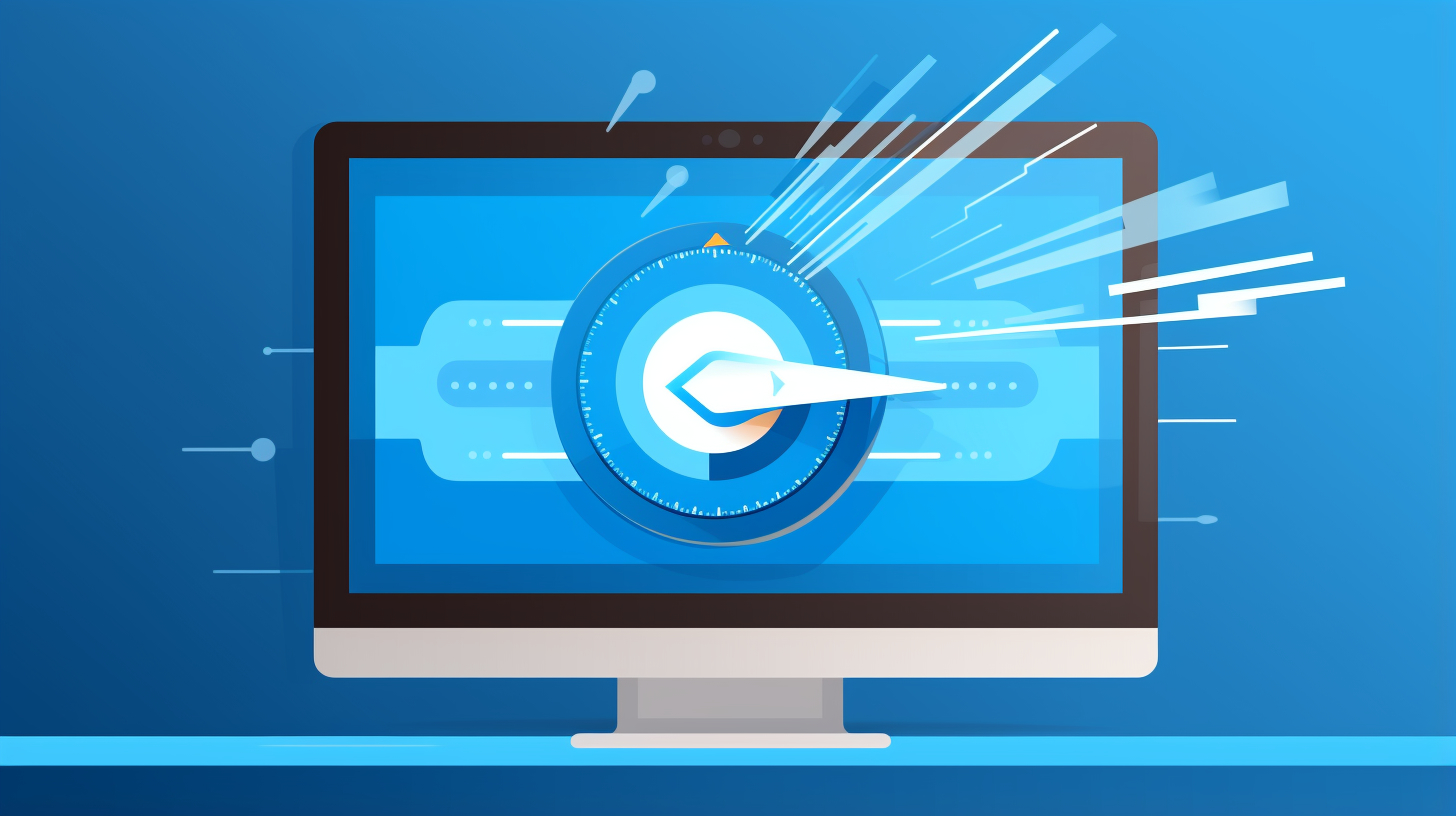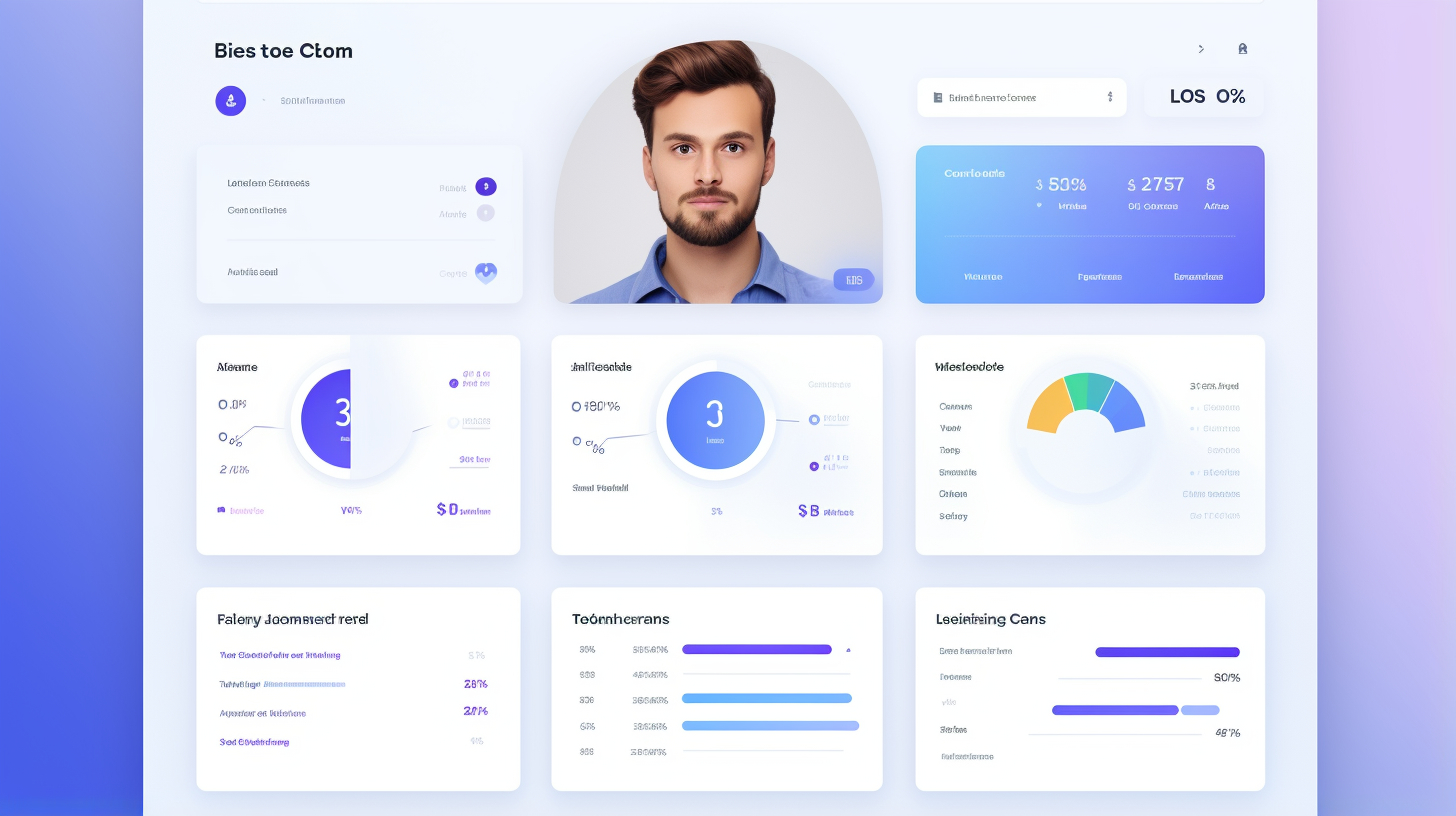Hey there, friend! Are you a proud owner of a WordPress website? If so, I’ve got some great news for you. In this article, we’re going to explore how you can supercharge your WordPress website by boosting its loading speed. Trust me, this is going to make a world of difference!
Now, you might be wondering why loading speed is such a big deal. Well, picture this: you stumble upon a website that takes ages to load. Frustrating, isn’t it? The truth is, loading speed plays a crucial role in the success of a website. Let me tell you why.
The Importance of Loading Speed
When it comes to running a website, speed matters. In today’s fast-paced digital world, users have little patience for slow-loading websites. People want instant access to information, and if your website doesn’t deliver, they won’t hesitate to click away. In fact, studies have shown that 40% of visitors will leave a website if it takes longer than three seconds to load. That’s a significant loss of potential customers!
But why does loading speed matter so much? Let’s delve deeper into the importance of website speed and its impact on your online success.
Consumer Expectations
In a world where we are accustomed to instant gratification, it’s no wonder that loading speed has become a critical factor in user experience. When visitors click on a link, they expect the page to load quickly and seamlessly. Anything less than that can be frustrating, and it reflects poorly on your website and brand.
If your website takes too long to load, users are likely to abandon it and look for alternatives. This can result in missed opportunities for engagement, conversions, and ultimately, revenue. Your website is essentially your online storefront, and just like a physical store, you want it to be inviting, easy to navigate, and efficient. Slow loading times can give your visitors a negative impression of your brand and make it harder to attract and retain them.
Impact on Conversion Rates
Website loading speed is not only crucial for user experience but also has a direct impact on your conversion rates. Research has shown that even a small improvement in website speed can make a significant difference in your bottom line. In fact, conversion rates can increase by 8% with just a 0.1 second improvement in website speed. That’s a remarkable return on investment!
On the flip side, a single second delay in loading time can result in a loss of 7% in conversions. That means if your website takes five seconds to load instead of three, you could be losing out on a substantial number of potential customers. In today’s competitive online marketplace, every second counts, and optimizing your website speed should be a top priority.
Interesting statistics about website loading speed:
- The average page speed of a website is 3.21 seconds.
- One analysis of 5 million desktop websites found that webpage load time averages 10.3 seconds on desktop and 27.3 seconds on mobile.
- 40% of visitors will leave a website if it takes longer than three seconds to load.
- Conversion rates can increase by 8% with just a 0.1 second improvement in website speed.
- A single second delay in loading time results in a 7% loss in conversion.
Now that we understand the importance of loading speed, let’s explore some effective ways to optimize the speed of your WordPress website and supercharge its performance.
Optimizing WordPress Website Speed
Is your WordPress website running slower than you’d like? Slow loading speeds can be frustrating for both you and your website visitors. A slow website not only affects the user experience but also has a negative impact on search engine rankings. Don’t worry though, there are several ways you can optimize the speed of your WordPress website. In this article, we will explore some of the best techniques to supercharge your WordPress website’s loading speed.
Installing a Caching Plugin
- What it does: A caching plugin creates and stores a static version of your web pages, which can be served to visitors instead of generating the page from scratch every time.
- Why it’s important: By caching your pages, you can dramatically reduce the server load and decrease the loading time of your website.
- Popular caching plugins: WP Rocket, W3 Total Cache, and WP Super Cache.
- How to install: Simply go to your WordPress dashboard, navigate to the “Plugins” menu, click on “Add New,” and then search for your desired caching plugin. Install and activate the plugin, and you’re ready to go!
Optimizing Images
- Why it matters: Large image sizes can significantly slow down your website. Optimizing images involves reducing their file size without compromising on quality.
- How to optimize images:
- Choose the right file format: Use JPEG for photographs and PNG for images with fewer colors or transparency.
- Resize images: Ensure images are resized to the dimensions needed for your website.
- Compress images: Use compression tools or plugins to reduce the file size of your images.
- Popular image optimization plugins: Smush, EWWW Image Optimizer, and Optimole.
Content Delivery Network (CDN)
- What is a CDN: A Content Delivery Network (CDN) is a distributed network of servers located worldwide that deliver web content to users based on their geographical location.
- Benefits of using a CDN:
- Faster content delivery: By serving your website’s static files from servers near your visitors, a CDN can significantly reduce the loading time.
- Improves website performance: A CDN helps distribute the bandwidth load, ensuring smooth performance even during traffic spikes.
- Popular CDNs: Cloudflare, StackPath, and KeyCDN.
High-Quality WordPress Theme
- Why it matters: The theme you choose can have a significant impact on your website’s performance. A well-coded and lightweight theme will load faster.
- Tips for choosing a high-quality theme:
- Opt for a minimalistic design: Themes with excessive animations, sliders, and complex layouts tend to be slower.
- Check for responsiveness: Ensure the theme is responsive and mobile-friendly.
- Read reviews: Look for reviews and ratings to gauge the theme’s performance and support.
- Consider premium themes: Premium themes are often well-optimized with added features for better performance.
Reducing the Number of Plugins
- Why it’s important: While plugins offer added functionality, having too many of them can slow down your WordPress website.
- How to reduce plugins:
- Review your plugins: Identify and remove any plugins that are duplicated or unnecessary.
- Consolidate functionality: Look for multi-purpose plugins that can perform multiple tasks, reducing the need for multiple plugins.
- Choose lightweight plugins: Opt for plugins that are well-coded and lightweight to minimize their impact on performance.
These are just a few of the many techniques available to optimize the speed of your WordPress website. Remember that each website is unique, and it may require a combination of strategies to achieve the best results. Take the time to analyze your website’s performance and make informed decisions about which optimization techniques are most suitable for your specific needs.
“Website visitors have high expectations when it comes to loading speed. By investing in optimizing your WordPress website’s speed, you can provide a seamless user experience and increase your chances of converting visitors into customers.”
Conclusion
In conclusion, the loading speed of your WordPress website plays a crucial role in attracting and retaining visitors, as well as converting them into customers. Slow-loading websites can result in high bounce rates and lost revenue opportunities. However, by implementing some simple optimization techniques, you can supercharge your website’s loading speed and provide a seamless user experience.
Remember, every second counts when it comes to website speed. Be sure to optimize your images, utilize caching mechanisms, and minimize HTTP requests. Choose a high-quality WordPress theme, reduce the number of plugins, and update your WordPress version regularly. Consider incorporating a content delivery network (CDN) and lazy loading technique to further enhance your website performance.
To help you optimize your WordPress website for speed, Managed-WP offers a comprehensive range of solutions. With Managed-WP, you can enjoy the benefits of a reliable hosting provider, expert 24/7/365 support, and advanced caching mechanisms. Our platform simplifies your infrastructure, giving you the freedom to focus on creating exceptional digital experiences for your audience.
Supercharge your WordPress website today and provide your visitors with lightning-fast loading speeds. Visit Managed-WP.com to learn more about WordPress speed optimization and discover how our platform can help you achieve optimal performance.

Learn more about WordPress speed optimization with Managed-WP
Frequently Asked Questions
- Why is website loading speed important?
Website loading speed is important as it directly affects user experience, bounce rates, search engine rankings, and conversion rates. A slow-loading website can lead to frustrated users and negatively impact your online presence.
- What are some common factors that contribute to slow website loading speed?
Some common factors that contribute to slow website loading speed are: unoptimized images, large file sizes, excessive use of plugins, poorly coded themes, server issues, and lack of caching and compression.
- How can I improve my WordPress website’s loading speed?
You can improve your WordPress website’s loading speed by optimizing images and using caching plugins, minimizing the number of plugins, choosing a lightweight theme, enabling gZip compression, using a content delivery network (CDN), and optimizing your website’s code.
- What are the recommended caching plugins for WordPress?
Some of the recommended caching plugins for WordPress are: 1. W3 Total Cache, 2. WP Super Cache, 3. WP Rocket, 4. LiteSpeed Cache, and 5. Hummingbird.
- Do I need technical knowledge to improve my website’s loading speed?
While some optimization techniques may require technical knowledge, there are user-friendly plugins and tools available that make it easier for non-technical users to improve their website’s loading speed. However, for complex issues, consulting a professional is recommended.
{“@context”: “https://schema.org”,”@type”: “FAQPage”, “mainEntity”: [
{“@type”: “Question”,”name”: “Why is website loading speed important?”,”acceptedAnswer”: { “@type”: “Answer”,”text”: “Website loading speed is important as it directly affects user experience, bounce rates, search engine rankings, and conversion rates. A slow-loading website can lead to frustrated users and negatively impact your online presence.”}},
{“@type”: “Question”,”name”: “What are some common factors that contribute to slow website loading speed?”,”acceptedAnswer”: { “@type”: “Answer”,”text”: “Some common factors that contribute to slow website loading speed are: unoptimized images, large file sizes, excessive use of plugins, poorly coded themes, server issues, and lack of caching and compression.”}},
{“@type”: “Question”,”name”: “How can I improve my WordPress website’s loading speed?”,”acceptedAnswer”: { “@type”: “Answer”,”text”: “You can improve your WordPress website’s loading speed by optimizing images and using caching plugins, minimizing the number of plugins, choosing a lightweight theme, enabling gZip compression, using a content delivery network (CDN), and optimizing your website’s code.”}},
{“@type”: “Question”,”name”: “What are the recommended caching plugins for WordPress?”,”acceptedAnswer”: { “@type”: “Answer”,”text”: “Some of the recommended caching plugins for WordPress are: 1. W3 Total Cache, 2. WP Super Cache, 3. WP Rocket, 4. LiteSpeed Cache, and 5. Hummingbird.”}},
{“@type”: “Question”,”name”: “Do I need technical knowledge to improve my website’s loading speed?”,”acceptedAnswer”: { “@type”: “Answer”,”text”: “While some optimization techniques may require technical knowledge, there are user-friendly plugins and tools available that make it easier for non-technical users to improve their website’s loading speed. However, for complex issues, consulting a professional is recommended.”}}
]}



















